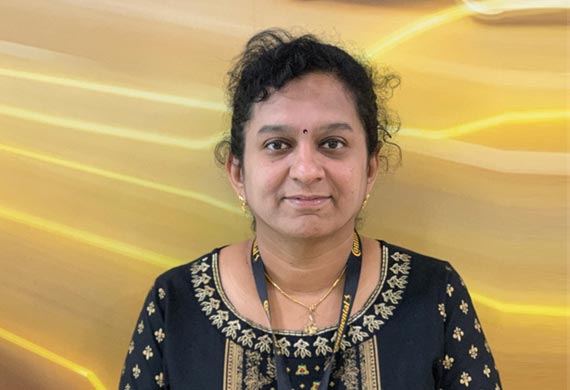
Intrapreneurs Will Be More Appreciated By Companies as they Move into a Hybrid or Entirely Remote Workforce Model
By: Anupama Raman, Global Head Software Academy, Continental Automotive India
Software Academy is a strategic initiative setup by the Continental Automotive’s Executive board to create a software landscape globally by building pipeline of various software engineering roles who are equipped to handle current and futuristic technologies which are emerging in the automotive landscape. As global head Anupama is responsible for setting up, devising the strategy and governing the execution of Software Center of Excellence (CoE) in all the 63 countries & 102 locations in which Continental Automotive group operates.
Q. Tell us about the challenges and opportunities pertaining to Online Learning in 2021?
A. 2020 was the year of the big reset. A lot of new trends came into the picture, while few trends like online learning that were already on the rise, saw a greater push during the lockdown. COVID -19 outbreak has inspired a lot of professionals to ‘revisit’ learning. A lot of professionals took to online courses to refresh their skill sets and get new certifications.
According to the 2021 report released by KPMG India and Google on online education in India, it is estimated that the industry will witness growth of eight times in three years.
However, online learning also presents some challenges. To name a few simple examples - less interactivity for self-paced courses, technical, or network issues during live classes. The biggest and most common challenge that any professional faces are staying motivated to pursue the course.
At Continental, we realized the importance of online learning and reskilling some time back and launched the Software Academy. Continental’s Software Academy is an internal learning platform that is designed to improve and widen the skills of Software Engineers. The focus is laid on topics that will gain importance for Continental in coming years like agile development, cybersecurity, and Artificial Intelligence. The courses are delivered in multiple modes like coding challenges, micro-learning, gamified learning, etc., to keep the millennials engaged and motivated.
Globally as classroom training was stalled during Corona, there was a steep increase in the usage rate of Software Academy. In 2020, there was an increase by 300 percent in the count of Software Academy Completed trainings. In India, there was an increase in usage by over 40 percent during the corona lockdown times. Working from home which in turn led to savings in commuting time and this was one of the key reasons for increased usage in India.
Q. How is the future of learning going to br different from the past? What is the way forward?
A. The future of the learning will not be restricted to a classroom-model. It will be more collaborative and interactive. The concept of a teacher standing in front of a batch and teaching has become a thing of the past.
COVID-19 taught us that learning can happen at one’s own pace. Many of us enrolled in courses that we had been planning for a long time. This is the future.
Microlearning targeted to individual learning curves would gain more popularity in the coming years. Further, online learning of real-world applications and gamification would also become a norm in the coming times.
Q. In your opinion what does it take to be a successful professional, both fresher & experienced?
A. The pandemic has made us realize the importance of technology. It has created a demand for a new, agile workforce that is comfortable in different roles across varied conditions.
The employees of 2021 would need to become equipped with newer technologies and skillsets - be it fresher or experienced employees. Adaptability, which is not particularly a skill that can be taught, would also be in high demand.
Intrapreneurs, highly motivated employees who can take initiative will be more appreciated by companies as they move into a hybrid or entirely remote workforce model. This format of working would require all of the skills mentioned above.
Q. India still stands quite below the Global Innovation Index. How should industry and academia prepare to fill in the gap?
A. In GII-2020, India scored 35.59 points out of 100 and is ranked 48, which is an improvement from the previous year but still, we have a long way to go. The industry and academia are also taking significant steps to fill the skill gap.
We need to refresh our curriculum and skill, reskill, upskill people according to the new industry requirements. Companies need to integrate certifications achievement as part of the employee’s growth plan. We can also include gaming challenges and hackathons as part of our employee engagement activities.






